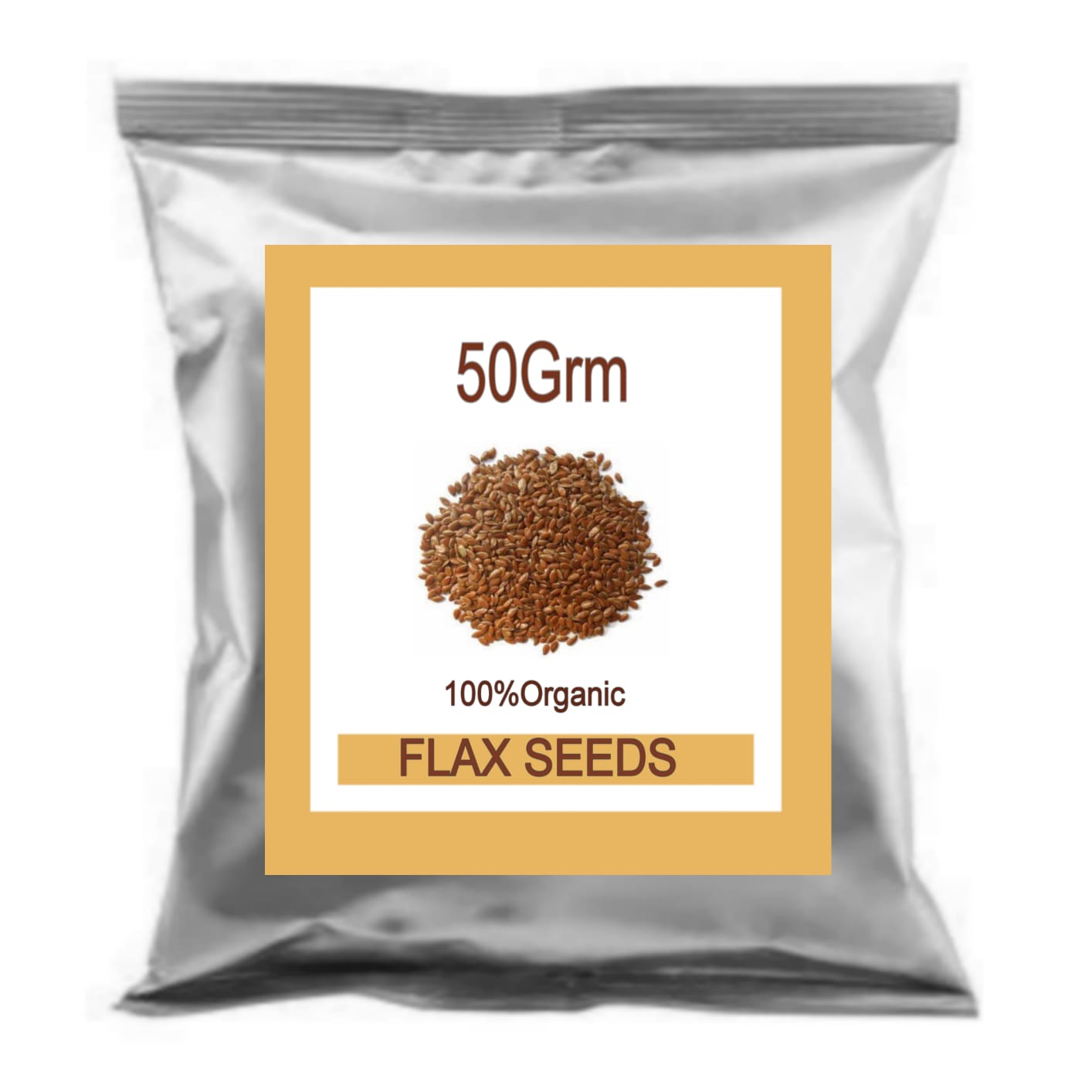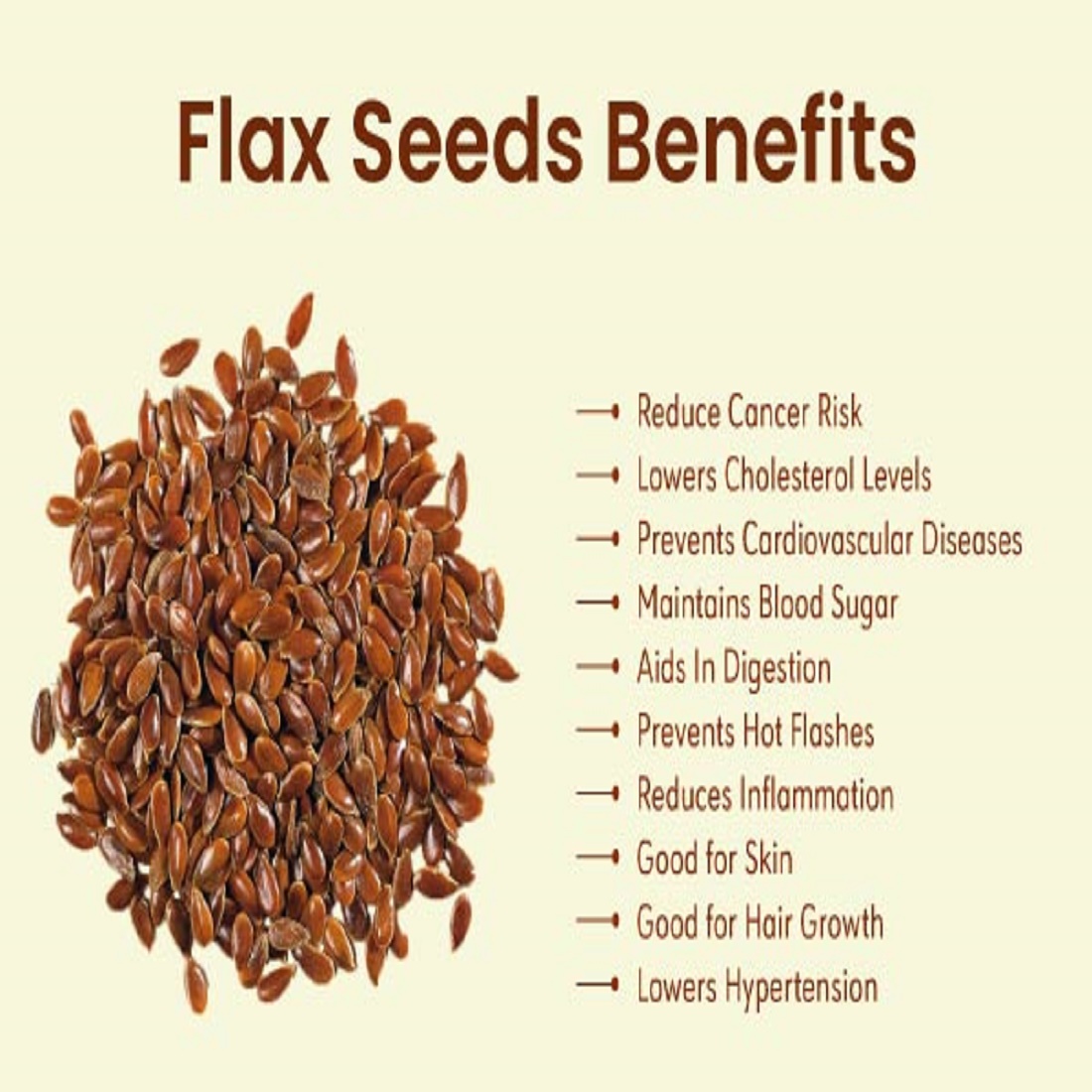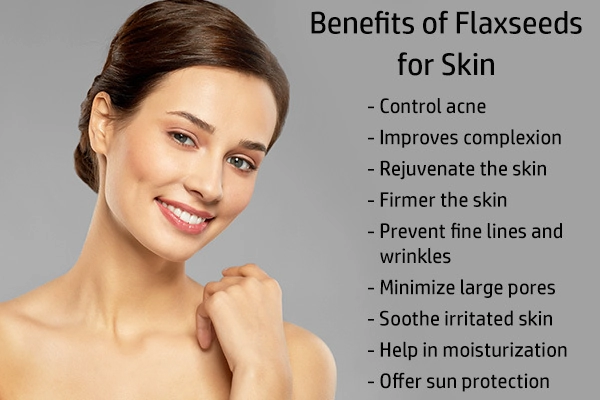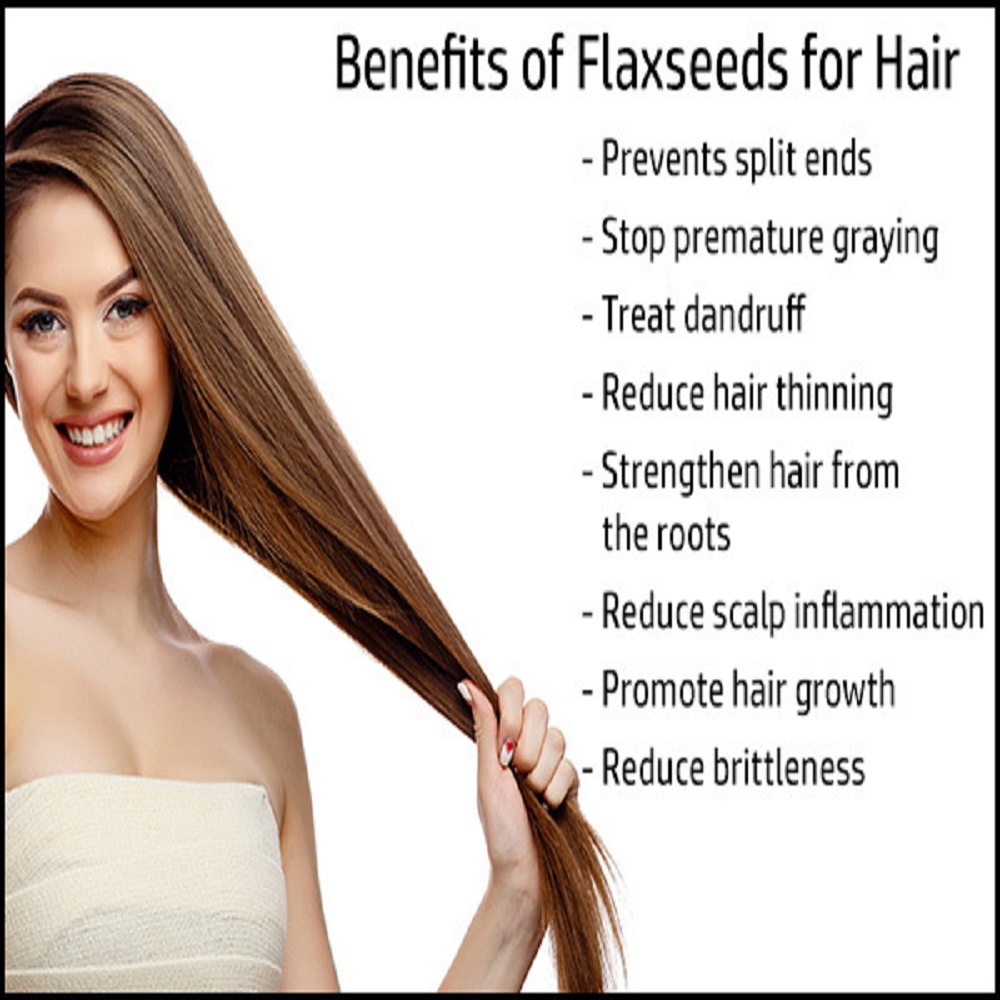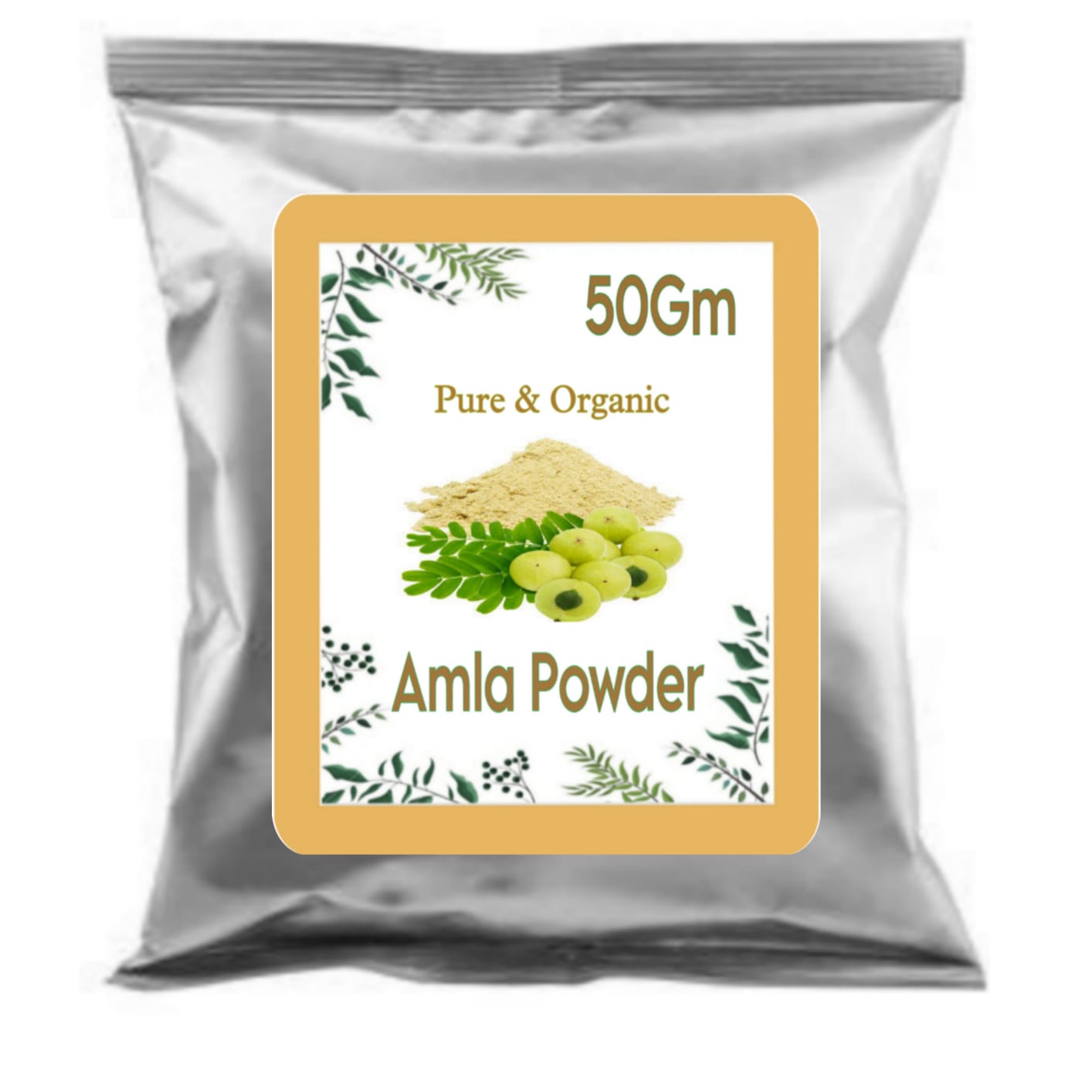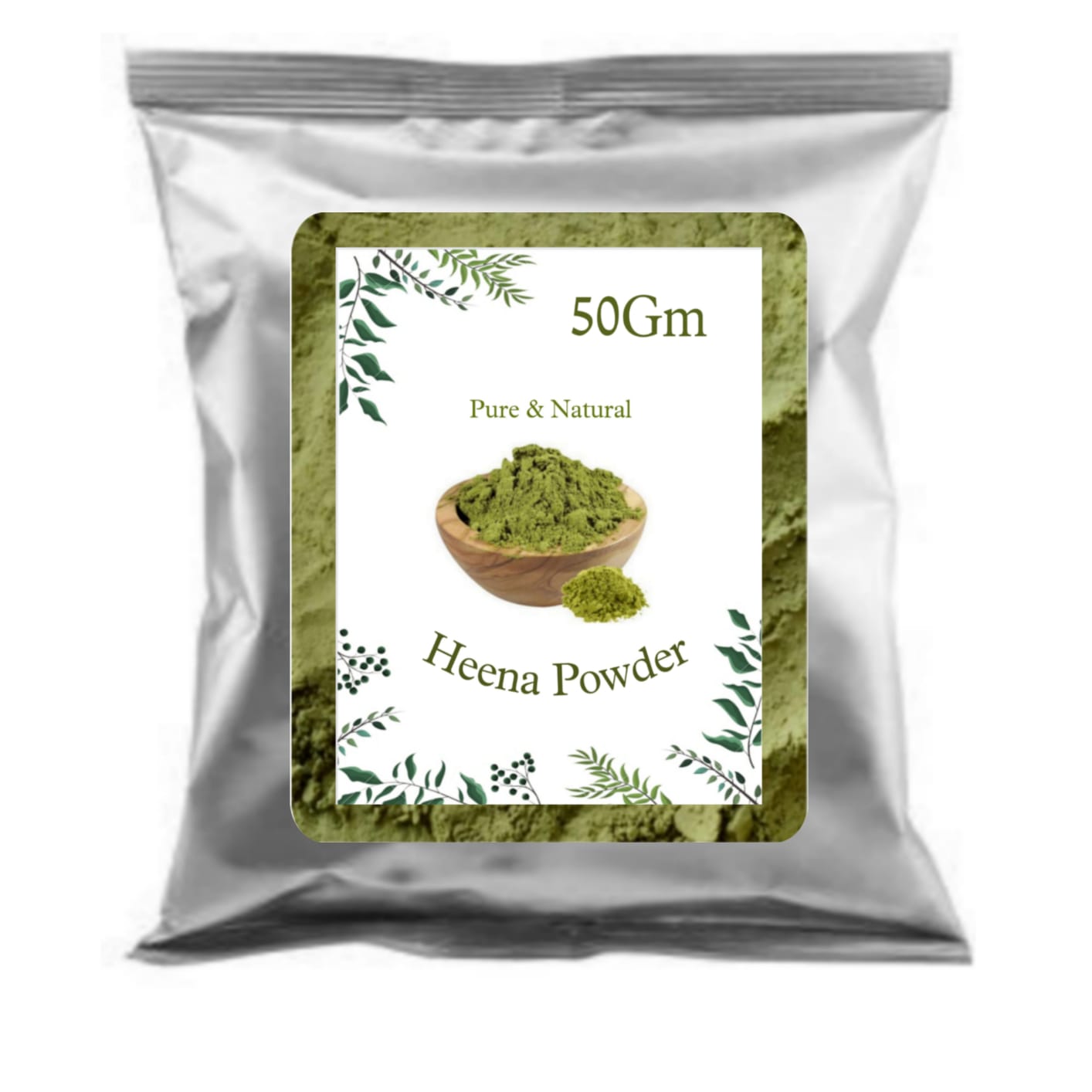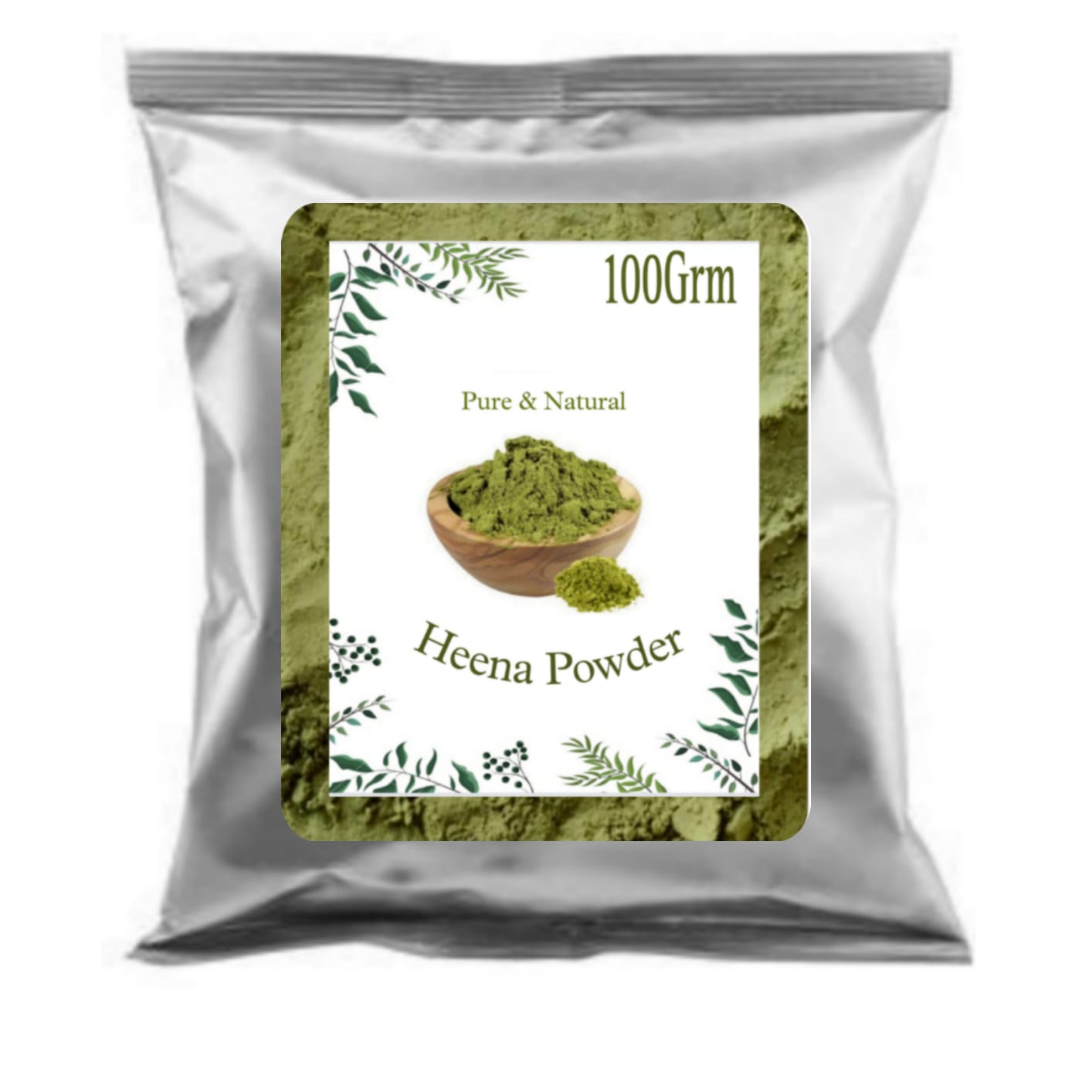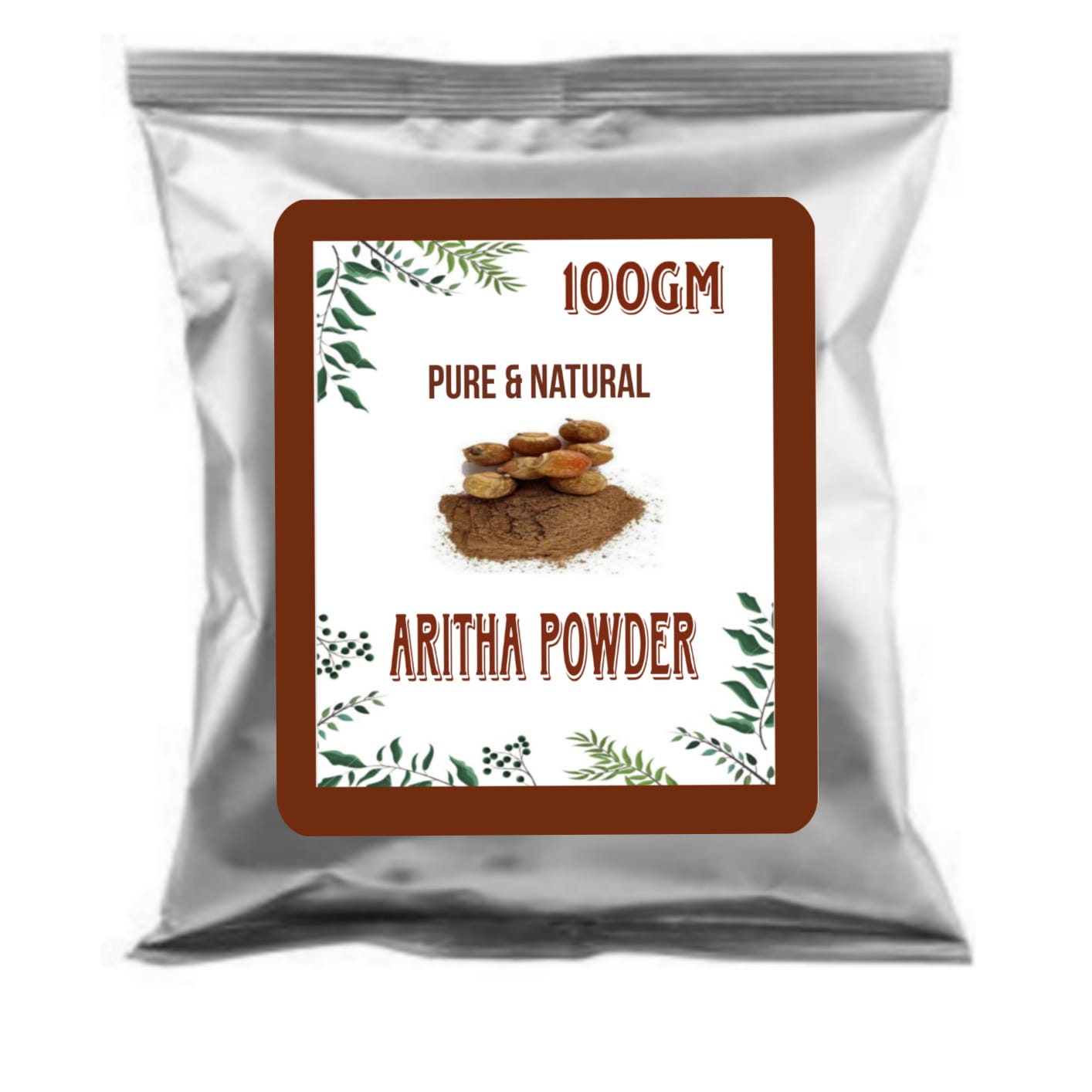Flax seeds, also known as linseeds, are small, shiny, and flat seeds derived from the flax plant (Linum usitatissimum). They have been cultivated for thousands of years and are widely recognized for their nutritional benefits. Flax seeds are native to regions in the Middle East and South Asia but are now grown in various parts of the world.: Flax seeds are typically small, about 2-4 mm in size, and come in different colors, including brown, golden, and even reddish hues. The seeds have a smooth and glossy surface.
Nutritional Profile: Flax seeds are considered a superfood due to their impressive nutritional content. They are an excellent source of:
-
-
omega-3 Fatty Acids: Flax seeds are one of the richest plant-based sources of alpha-linolenic acid (ALA), an essential omega-3 fatty acid that is beneficial for heart health, brain function, and inflammation regulation.
-
Dietary Fiber: Flax seeds are rich in soluble and insoluble fiber, aiding digestion, promoting bowel regularity, and providing a feeling of fullness.
-
Protein: Flax seeds contain a good amount of protein, making them valuable for vegetarian and vegan diets.
-
Lignans: Flax seeds are abundant in lignans, which act as antioxidants and have potential anti-cancer properties.
Health Benefits: Consuming flax seeds regularly has been associated with numerous health benefits, including:
- Improved heart health and reduced risk of cardiovascular diseases.
- Better cholesterol levels.
- Regulation of blood sugar levels and reduced risk of type 2 diabetes.
- Anti-inflammatory effects that may benefit conditions like arthritis.
- Potential cancer-fighting properties due to their lignan content.
- Support for digestive health and weight management.
flax seeds usesFlax seeds have a wide range of uses and can be incorporated into various dishes and recipes. Here are some common ways to use flax seeds:-
Ground Flaxseed: Grinding flax seeds into a fine powder is a popular method to unlock their nutritional benefits and improve digestibility. Ground flaxseed can be added to:
- Smoothies: Mix ground flaxseed into your favorite fruit or vegetable smoothies for an extra boost of nutrients and fiber.
- Baked Goods: Incorporate ground flaxseed into muffins, bread, pancakes, and cookies to add nuttiness and enhance the nutritional value of your baked treats.
- Oatmeal or Cereal: Sprinkle ground flaxseed over your morning oatmeal or cereal to increase the fiber and omega-3 content.
-
Flaxseed Oil: Flaxseed oil is another way to enjoy the nutritional benefits of flax seeds. However, it's important to use flaxseed oil cold (not for cooking) since heat can degrade the delicate omega-3 fatty acids. You can:
- Drizzle: Use flaxseed oil as a dressing for salads, cooked vegetables, or pasta dishes to add a nutty flavor and a nutritional boost.
- Blend: Incorporate flaxseed oil into salad dressings, dips, and marinades.
-
Vegan Egg Substitute: Flax seeds can act as an egg substitute in certain recipes, making them a valuable ingredient for vegan and egg-free cooking and baking. To use flax seeds as an egg substitute:
- Mix one tablespoon of ground flaxseed with three tablespoons of water to replace one egg in recipes like muffins, cookies, and pancakes. Let the mixture sit for a few minutes until it forms a gel-like consistency.
-
Flaxseed Meal in Meatballs and Burgers: Ground flaxseed can be used as a binder in meatball and burger recipes, offering a healthier alternative to breadcrumbs.
-
Yogurt and Smoothie Toppings: Sprinkle whole flax seeds over yogurt, smoothie bowls, or fruit salads to add crunch and nutrition.
-
Flaxseed Porridge: Cook ground flaxseed with water or milk to create a flaxseed porridge. Add sweeteners, fruits, or nuts to enhance the flavor and texture.
-
Flaxseed Crackers: Incorporate ground flaxseed into homemade crackers for a nutritious and delicious snack.
Remember that flax seeds have a mild, nutty flavor, so they can be easily blended into various dishes without significantly altering the taste. Whether you choose to use ground flaxseed or flaxseed oil, incorporating flax seeds into your daily meals can be a beneficial addition to your overall diet and nutrition. As always, it's essential to consume them in moderation and be mindful of potential allergies or sensitivities.
flax seeds for skinFlax seeds can be beneficial for the skin due to their rich nutritional profile, particularly their content of omega-3 fatty acids, lignans, and antioxidants. Here are some ways in which flax seeds can promote healthy skin:
-
Omega-3 Fatty Acids: Flax seeds are an excellent source of alpha-linolenic acid (ALA), a type of omega-3 fatty acid. Omega-3s play a crucial role in maintaining the skin's barrier function, which helps retain moisture and keep the skin hydrated. Adequate omega-3 intake may help reduce dryness, itching, and inflammation, contributing to softer and more supple skin.
-
Anti-Inflammatory Properties: Flax seeds contain compounds with anti-inflammatory properties, which can help soothe irritated skin conditions such as eczema, psoriasis, and acne. The reduction of inflammation can lead to improved skin texture and a more even complexion.
-
Antioxidants: Flax seeds are rich in lignans, which act as antioxidants. Antioxidants help neutralize free radicals, which are unstable molecules that can cause cellular damage and contribute to premature aging of the skin. By combating free radicals, flax seeds may help protect the skin from oxidative stress and maintain a youthful appearance.
-
Skin Repair and Healing: The omega-3 fatty acids in flax seeds support the skin's natural healing process. They may aid in reducing skin irritation, redness, and swelling, helping the skin recover from various environmental stressors and injuries.
-
Improved Skin Elasticity: Regular consumption of flax seeds may contribute to better skin elasticity, which is essential for maintaining a firm and youthful appearance.
-
Hydration: Flax seeds contain both soluble and insoluble fiber, which can help improve digestion and promote regular bowel movements. Adequate hydration and proper digestion play a role in keeping the skin clear and healthy.
flax seeds for hairFlax seeds can be beneficial for hair health when included in your diet or used externally as a natural hair treatment. Here are some ways in which flax seeds can promote healthy hair:
-
Rich in Essential Nutrients: Flax seeds are a good source of essential nutrients, including omega-3 fatty acids, protein, vitamins (B-complex, vitamin E), and minerals (magnesium, zinc, and copper). These nutrients are essential for maintaining strong and healthy hair.
-
Omega-3 Fatty Acids: The omega-3 fatty acids found in flax seeds nourish the hair follicles and promote hair growth. They also help in reducing inflammation on the scalp, which can contribute to a healthier environment for hair growth.
-
Lignans and Antioxidants: Flax seeds contain lignans and antioxidants that help protect the hair from damage caused by free radicals, pollutants, and environmental stressors. This can lead to improved hair health and appearance.
-
Moisturizing Properties: Flaxseed oil, extracted from flax seeds, can be used as a natural hair moisturizer. It helps in hydrating the hair strands, making them softer, smoother, and more manageable.
-
Flaxseed Gel for Styling: Flaxseed gel, made by boiling flax seeds in water, can be used as a natural styling gel for hair. It provides a light hold, reduces frizz, and gives a natural shine to the hair without the use of harmful chemicals.
-
Reducing Hair Breakage: The proteins present in flax seeds can help strengthen the hair shaft and reduce breakage, leading to less hair fall and healthier-looking hair.
-
Scalp Health: The anti-inflammatory properties of flax seeds may help soothe an irritated scalp, reducing dandruff and itchiness.
Ways to Use Flax Seeds for Hair:
-
Consuming Flax Seeds: Including flax seeds in your regular diet can help improve overall hair health by providing essential nutrients that support hair growth and strength.
-
Flaxseed Hair Gel: Make a DIY flaxseed gel by boiling flax seeds in water until it forms a gel-like consistency. Strain the gel and let it cool. Apply the gel to damp hair as a natural styling product or leave-in conditioner.
-
Flaxseed Oil Hair Treatment: You can apply flaxseed oil directly to your scalp and hair as a deep conditioning treatment. Massage a small amount of flaxseed oil into your scalp and hair, leave it on for a few hours or overnight, and then wash it out with a mild shampoo.
-
Flaxseed Oil Supplement: If you prefer not to use the oil directly on your hair, you can consider taking flaxseed oil supplements to benefit from its hair-nourishing properties.
-

